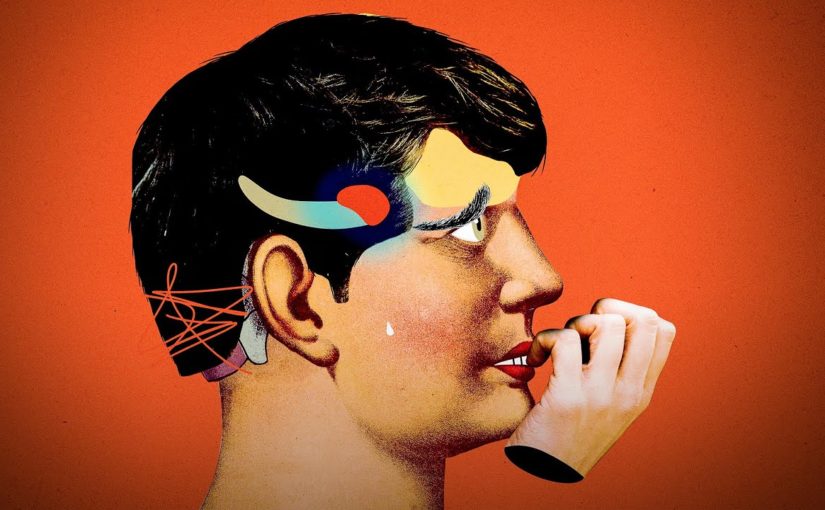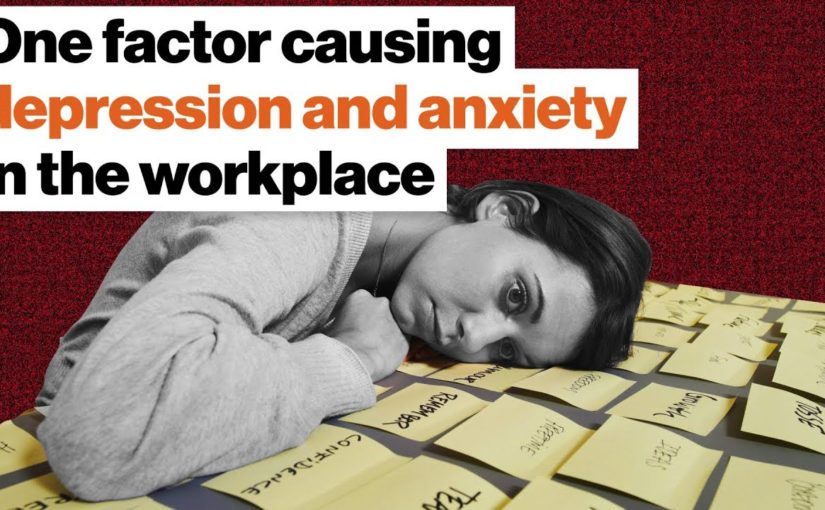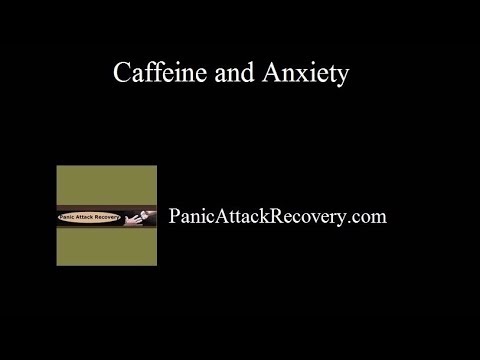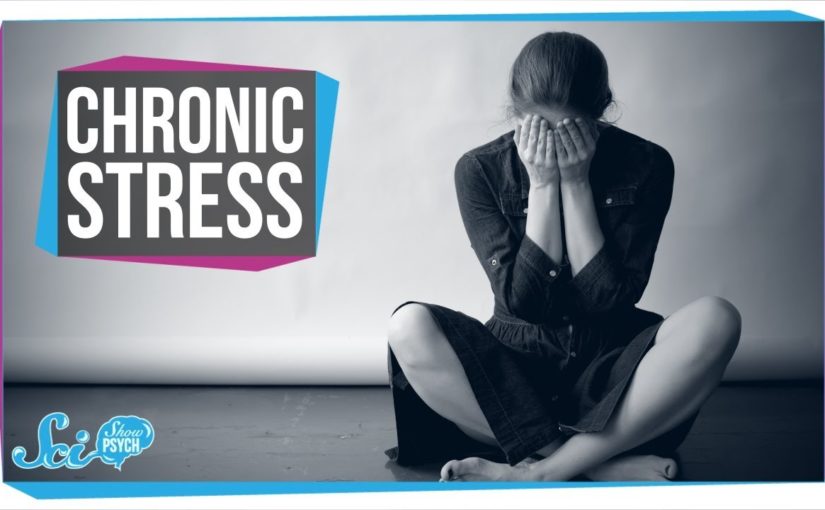Transcriber We live in a culture that doesn’t take mental health issues seriously. There’s a lot of stigma.Some people tell you to just suck it up or get it together or to stop worrying or that it’s all in your head.But I’m here to tell you that anxiety disorders, they’re as real as diabetes, Music Body Stuff with Dr Jen Gunter Hi.Again It’s, Dr Jen, and I’ve noticed something with my patients.They often describe to me some classic symptoms of an anxiety disorder.Constant worry, trouble, sleeping tense muscles, and struggle with concentrating, But they aren’t getting treatment.There are a lot of issues with mental health care in this country.Some people, don’t have insurance that would cover it.Some have been dismissed or minimized in the past and don’t think seeking help will do any good.Some worry about the stigma and whether it could affect future jobs or relationships But severe anxiety. Isn’t a moral or personal failing It,’s a health problem, just like strep throat or diabetes.It needs to be treated with the same kind of seriousness.Before we can talk about anxiety disorders, let’s talk about anxiety itself.Anxiety is the very real and normal emotion we feel in a stressful situation.It’s related to fear, But, while fear is a response to an immediate threat that quickly subsides anxiety is a response to more uncertain threats that tend to last much longer.It’s all part of the threat detection system that all animals have to some degree to help protect us from predators.Anxiety starts in the brain’s amygdala a pair of almond-sized nerve, bundles that alert other areas of the brain to be ready for defensive action.Next, the hypothalamus relays the signal setting off what we call the stress response in our body, Our muscles tense, our breathing and heart rate increase and our blood pressure rises.Areas in the brain stem kick in and put you in a state of high alertness.This is the fight-or-flight response. There are ways the fight or flight response is kept somewhat in check with an area of higher-level thinking called the ventromedial prefrontal cortex.It works like this.If a person sees something they think is dangerous, like a tiger that sends a signal to the amygdala saying it’s, time to run The ventromedial prefrontal cortex can say to the amygdala: Hey, look The tiger’s in a cage.You know what a cage is.They can’t escape from a cage.It’s, OK, to calm down It’s, a feedback loop that can help keep the response in check.The hippocampus is also involved.It provides context by saying things like Hey: we’ve seen tigers in cages before We’re in a zoo.You are extra safe With anxiety.These threat detection systems and mechanisms that reduce or inhibit them are functioning incorrectly and cause us to worry about the future and our safety in it. But for many people, it goes into overdrive.They experience persistent pervasive anxiety that disrupts work, school, and relationships and leads them to avoid situations that may trigger symptoms.Anxiety disorders are not at all uncommon, Based on data from the World Mental Health Survey.Researchers estimate that about 16 percent of individuals currently have or have had an anxiety disorder.These include social anxiety, disorder, panic, disorder, agoraphobia and phobias.Studies have shown that people with anxiety disorders, don’t just have a different way of reacting to stress.There may be actual differences in how their brain is working.One model describes a possible mix.Ups in the connections between the amygdala and other parts of the brain, The pathways that signal anxiety become stronger And the more anxiety you have, the stronger the pathways become and it becomes a vicious cycle.The good news is there’s, treatment for anxiety and that you, don’t have to suffer. Remember this isn’t about weakness.It’s about changing brain patterns and research shows that our brains can reorganize and form new connections.Throughout our lives, A good first step is to do the basics, Eat a balanced diet, exercise regularly, and get plenty of sleep.As your mind is part of your body.It might also help to try meditation Instead of our heart rate, rising and our body tensing with mindfulness and breathing.We can slow down the fight or flight response and improve how we feel in the moment through cognitive behavioral therapy.A form of talk therapy can also be fantastic In it.You learn to identify upsetting thoughts and determine whether they’re realistic Over time.Cognitive behavioral therapy can rebuild those neural pathways that tamp down the anxiety response.Medication can also give relief in both the short term and the long term. In the short term, anti-anxiety drugs can down-regulate the threat, and detection mechanisms that are going into overdrive.Studies have shown that both long-term medications and cognitive behavioral therapy can reduce the overreactivity of the amygdala.We see anxiety disorders, High blood pressure, and diabetes.They can be treated or managed over time, And the same is true for an anxiety disorder too.
ᵃⁿⁱᵐᵃᵗⁱᵒⁿ ˢᵗᵘᵈⁱᵒ ᴏɴᴇ-ᴛɪᴍᴇ ꜱᴘᴇᴄɪᴀʟ ᴜᴘɢʀᴀᴅᴇ ᴅᴇᴀʟ – ᴍᴀʏ ᴇxᴘɪʀᴇ ᴏɴᴄᴇ ʏᴏᴜ ʟᴇᴀᴠᴇ ᴛʜɪꜱ ᴘᴀɢᴇ. ꜱᴋɪᴘ ᴛʜɪꜱ ᴅᴇᴀʟ ᴀᴛ ʏᴏᴜʀ ᴏᴡɴ ʀɪꜱᴋ ᴀꜱ ᴛʜᴇ ᴘʀɪᴄᴇ ᴍᴀʏ ᴅᴏᴜʙʟᴇ ᴡɪᴛʜᴏᴜᴛ ɴᴏᴛɪᴄᴇ!
Animation Studio is a must-have for anyone serious about selling or promoting anything online with video! Damon Nelson. Wow, Paul & Todd, this is a competition killer. “
Animation Studio The
Animation Creator That You Have Been Waiting For Has Finally Arrived… …..”
 100 Hot BooksComputers LaptopsExplaindio Agency Edition FREE Training How to Create Explainer Videos & SELL or RENT them! Join this FREE webinar | Work Less & Earn More With Explaindio AGENCY EDITION
100 Hot BooksComputers LaptopsExplaindio Agency Edition FREE Training How to Create Explainer Videos & SELL or RENT them! Join this FREE webinar | Work Less & Earn More With Explaindio AGENCY EDITION
AFFILIATE MASTERY BONUS: 6-Week LIVE Series Has Begun!
FunnelMates $46.⁹⁵ Replays are Instantly Available. Want A Profitable Mailing List But Not Sure Where To Begin? We’ll Guide You, Equip You, and even PAY You Cash To Do It!

☃in 5-10 Minutes A Day Using Automation Software and our Time-Tested Strategy See How Your New Site Can Be Live In Just 27 Seconds From Now!
Funnelify you will be able to create high-quality converting leads pages, affiliate pages, sales pages, sales funnels, and business pages, and you will never need to pay a web designer again.

 FunnelMates $46.⁹⁵
FunnelMates $46.⁹⁵ AFFILIATE MASTERY BONUS: 6-Week LIVE Series Has Begun! Replays are Instantly Available.Want A Profitable Mailing List But Not Sure Where To Begin? We’ll Guide You, Equip You & Even PAY You Cash To Do It!5-10 Minutes A Day Using Automation Software & Our Time-Tested StrategySee How Your New Site Can Be Live In Just 27 Seconds From Now!“Today You’ll
Get Access To The Complete FunnelMates Suite, Traffic Automation Software Tools & Our Beginner Friendly 6 Week Affiliate Masterclass (Inc. Recordings) Responsible For Taking 1,000 Of Complete Affiliate Zero’s To Legendary Affiliate Marketing Hero’s”
FunnelMates Is The FIRST EVER
System That Simplifies List-Building Affiliate Funnels
To Something Anyone Can UseIn Fact … On Average, Out Of Every 100 People Who Visit On Your Pages3% are ready to buy 30% don’t think they’re interested
6-7% are open to the idea 30% KNOW they’re not interested
6-7% are open to the ideaLong Story Short, 97% Of People
Just Aren’t Ready To Buy From You Right Now…

 AFFILIATE MASTERY BONUS: 6-Week LIVE Series Has Begun! FunnelMates $46.⁹⁵ Replays are Instantly Available. Want A Profitable Mailing List But Not Sure Where To Begin? We’ll Guide You, Equip You, and even PAY You Cash To Do It!
AFFILIATE MASTERY BONUS: 6-Week LIVE Series Has Begun! FunnelMates $46.⁹⁵ Replays are Instantly Available. Want A Profitable Mailing List But Not Sure Where To Begin? We’ll Guide You, Equip You, and even PAY You Cash To Do It!  ☃in 5-10 Minutes A Day Using Automation Software and our Time-Tested Strategy See How Your New Site Can Be Live In Just 27 Seconds From Now!Funnelify you will be able to create high-quality converting leads pages, affiliate pages, sales pages, sales funnels, and business pages, and you will never need to pay a web designer again.
☃in 5-10 Minutes A Day Using Automation Software and our Time-Tested Strategy See How Your New Site Can Be Live In Just 27 Seconds From Now!Funnelify you will be able to create high-quality converting leads pages, affiliate pages, sales pages, sales funnels, and business pages, and you will never need to pay a web designer again.
 FunnelMates $46.⁹⁵ AFFILIATE MASTERY BONUS: 6-Week LIVE Series Has Begun! Replays are Instantly Available.Want A Profitable Mailing List But Not Sure Where To Begin? We’ll Guide You, Equip You & Even PAY You Cash To Do It!5-10 Minutes A Day Using Automation Software & Our Time-Tested StrategySee How Your New Site Can Be Live In Just 27 Seconds From Now!“Today You’ll Get Access To The Complete FunnelMates Suite, Traffic Automation Software Tools & Our Beginner Friendly 6 Week Affiliate Masterclass (Inc. Recordings) Responsible For Taking 1,000 Of Complete Affiliate Zero’s To Legendary Affiliate Marketing Hero’s”FunnelMates Is The FIRST EVER
System That Simplifies List-Building Affiliate Funnels
To Something Anyone Can UseIn Fact … On Average, Out Of Every 100 People Who Visit On Your Pages3% are ready to buy 30% don’t think they’re interested
6-7% are open to the idea 30% KNOW they’re not interested
6-7% are open to the ideaLong Story Short, 97% Of People
Just Aren’t Ready To Buy From You Right Now…
FunnelMates $46.⁹⁵ AFFILIATE MASTERY BONUS: 6-Week LIVE Series Has Begun! Replays are Instantly Available.Want A Profitable Mailing List But Not Sure Where To Begin? We’ll Guide You, Equip You & Even PAY You Cash To Do It!5-10 Minutes A Day Using Automation Software & Our Time-Tested StrategySee How Your New Site Can Be Live In Just 27 Seconds From Now!“Today You’ll Get Access To The Complete FunnelMates Suite, Traffic Automation Software Tools & Our Beginner Friendly 6 Week Affiliate Masterclass (Inc. Recordings) Responsible For Taking 1,000 Of Complete Affiliate Zero’s To Legendary Affiliate Marketing Hero’s”FunnelMates Is The FIRST EVER
System That Simplifies List-Building Affiliate Funnels
To Something Anyone Can UseIn Fact … On Average, Out Of Every 100 People Who Visit On Your Pages3% are ready to buy 30% don’t think they’re interested
6-7% are open to the idea 30% KNOW they’re not interested
6-7% are open to the ideaLong Story Short, 97% Of People
Just Aren’t Ready To Buy From You Right Now…




 Withdrawal symptoms have been reported, such as headache, irritability, sleeplessness, confusion, nausea, restlessness, tremor palpitations, and raised blood pressure. You might be asking how to kick the caffeine habit or reduce the amount of coffee you consume. We would suggest you may want to think about two things. 1 Become aware of all your sources of caffeine by taking an inventory of all of your caffeine levels and 2. Consider substituting green tea in place of all or some of your daily coffee. Why green tea? Although green tea, has some caffeine? It s not nearly as much as coffee As mentioned, while a brewed 8 oz cup of coffee can have about 95 200 mg of caffeine. Green tea has about 14 40 mg of caffeine. Only In addition to subscribing to our YouTube channel, you can visit our website and Sign up for our free email newsletter, Obtain a range of articles about panic, attacks, anxiety, and agoraphobia, and Follow us on Twitter and Facebook. By taking advantage of these options, you can be assured that you will not be missing out on any of our resources. Please visit our website at
Withdrawal symptoms have been reported, such as headache, irritability, sleeplessness, confusion, nausea, restlessness, tremor palpitations, and raised blood pressure. You might be asking how to kick the caffeine habit or reduce the amount of coffee you consume. We would suggest you may want to think about two things. 1 Become aware of all your sources of caffeine by taking an inventory of all of your caffeine levels and 2. Consider substituting green tea in place of all or some of your daily coffee. Why green tea? Although green tea, has some caffeine? It s not nearly as much as coffee As mentioned, while a brewed 8 oz cup of coffee can have about 95 200 mg of caffeine. Green tea has about 14 40 mg of caffeine. Only In addition to subscribing to our YouTube channel, you can visit our website and Sign up for our free email newsletter, Obtain a range of articles about panic, attacks, anxiety, and agoraphobia, and Follow us on Twitter and Facebook. By taking advantage of these options, you can be assured that you will not be missing out on any of our resources. Please visit our website at  A high, prolonged cortisol level can mess with a lot of stuff. It’s even been seen to decrease the volume of your hippocampus, the area responsible
for learning and memory, and a reduced hippocampus
is more often seen in people with depression than those without. So all this is to say that the extra stress is probably not doing your brain or your body any favors. And humans are historically
bad at making decisions when they don’t know
what’s going to happen? So, what can you do to
reduce the allostatic load? Reduce stress. Eating well, exercising, and maintaining a regular sleep schedule cannot be overlooked. Exercising alone can
reduce stress hormones, even with just a 20-minute walk. And a different way of
thinking could also help us: an idea called model-free learning. It’s trial and error. Instead of basing your risk assessment on similar examples from the past or envisioning future scenarios, you just take it one step at a time. This way, you reassess and
update your estimate of what’s happening and how to prepare. We’re dealing with a new virus, constantly changing policies, and likely a completely different schedule and maybe even environment. Our brain is on high alert at all times to identify potential threats. This means that even if you’re spending most of your time laying around, your brain isn’t, so try not to beat yourself up for feeling tired or fuzzy, or unmotivated. You just don’t need anything
else to stress about. Now that you know all of this, how are you feeling? Alex: To be honest, I
do still feel the same. Fran: I think I’m feeling a
bit better after watching it. Victoria: It’s
my body is exhausted from feeling things and being under stress all day, all the time. Graham: Whenever I feel
that allostatic load starting to weigh down on me, you know, I can put a
name on it, a face on it, and it makes it a lot
easier to deal with it.
A high, prolonged cortisol level can mess with a lot of stuff. It’s even been seen to decrease the volume of your hippocampus, the area responsible
for learning and memory, and a reduced hippocampus
is more often seen in people with depression than those without. So all this is to say that the extra stress is probably not doing your brain or your body any favors. And humans are historically
bad at making decisions when they don’t know
what’s going to happen? So, what can you do to
reduce the allostatic load? Reduce stress. Eating well, exercising, and maintaining a regular sleep schedule cannot be overlooked. Exercising alone can
reduce stress hormones, even with just a 20-minute walk. And a different way of
thinking could also help us: an idea called model-free learning. It’s trial and error. Instead of basing your risk assessment on similar examples from the past or envisioning future scenarios, you just take it one step at a time. This way, you reassess and
update your estimate of what’s happening and how to prepare. We’re dealing with a new virus, constantly changing policies, and likely a completely different schedule and maybe even environment. Our brain is on high alert at all times to identify potential threats. This means that even if you’re spending most of your time laying around, your brain isn’t, so try not to beat yourself up for feeling tired or fuzzy, or unmotivated. You just don’t need anything
else to stress about. Now that you know all of this, how are you feeling? Alex: To be honest, I
do still feel the same. Fran: I think I’m feeling a
bit better after watching it. Victoria: It’s
my body is exhausted from feeling things and being under stress all day, all the time. Graham: Whenever I feel
that allostatic load starting to weigh down on me, you know, I can put a
name on it, a face on it, and it makes it a lot
easier to deal with it.